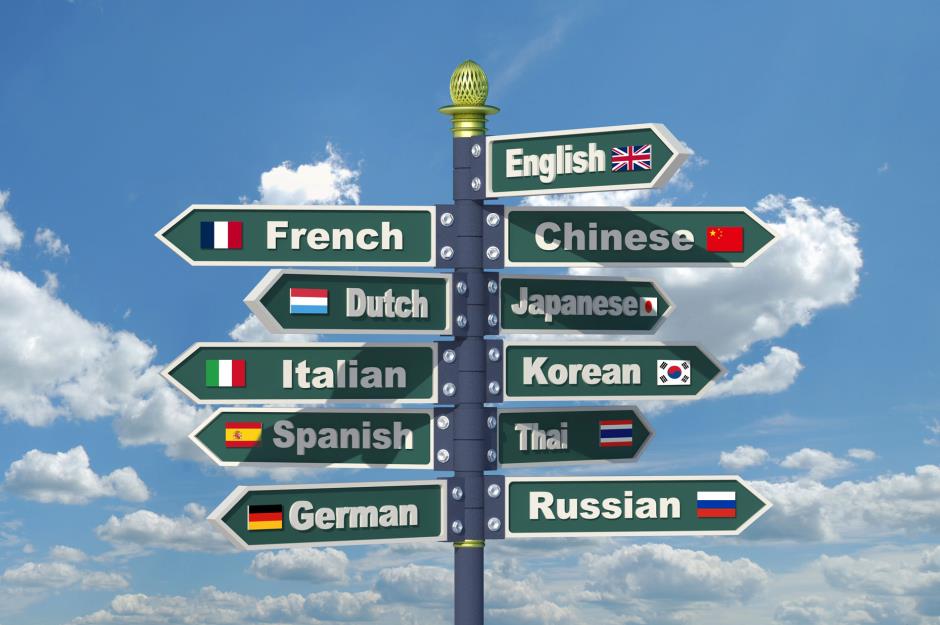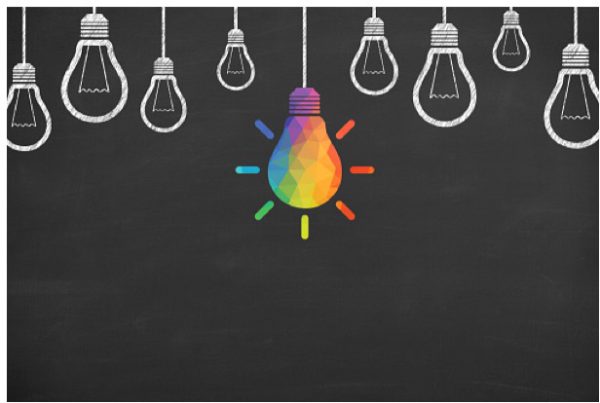As globalization has altered the social context of work, making it more complex, dynamic, and competitive, diversity became the new reality of the 21st Century.
From business and education to government, and academic research, today’s workers across a broad range of accountability levels, job roles, organization size, and industry interact daily with individuals from vastly different cultural backgrounds. That reality requires a new workplace competency – the ability to function effectively in different cultural contexts and manage multiple cultural diversity sources at once.
Globalization has increased and improved connectivity across people and business organizations all over the world. More and more organizations have expanded abroad to maintain their competitiveness, access new markets, and increase their teams. Today, the world is more connected than ever. The workplace is a hub where people belonging to different cultures and backgrounds work together. But how much has migration and economic changes helped or hurt organizational architecture and workers? It is easy to forget that people have different perceptions and perspectives, and cultural differences can make or break a business.
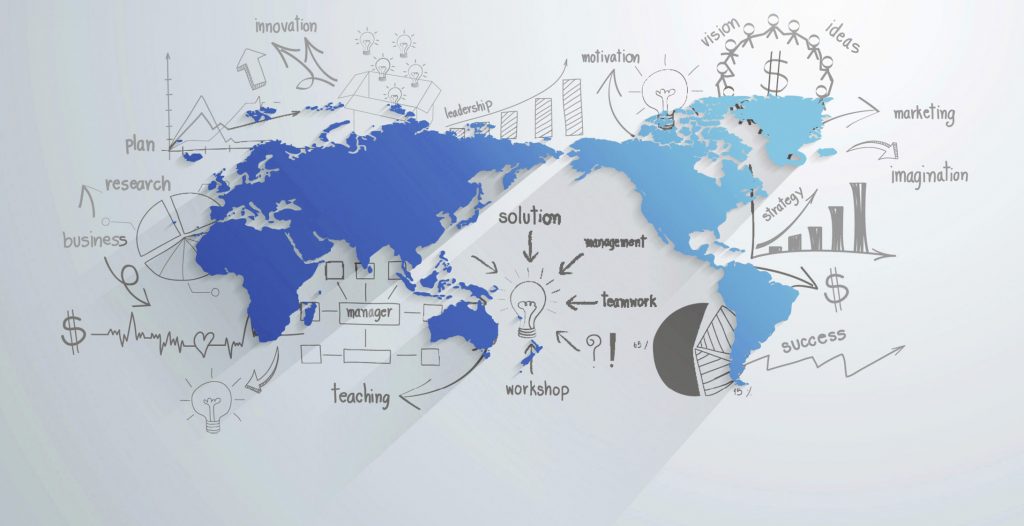
Globalization infographic concept. Image via Bertelsmann Stiftung
Developing a sense of cultural intelligence amongst the employees has become essential in today’s multicultural workplace.
“A diverse workforce, whose members have developed their cultural intelligence, is a more productive workforce — and a diverse team with high cultural intelligence will outperform homogeneous teams”
David Livermore
From another perspective, Doug Melville from Syracuse University argues diversity itself is a complex and layered word; it encompasses and accepts the differences and similarities shared by individuals; thus, it allows for the presence of a multitude of perspectives and ideas. By diversifying the workspace, you automatically diversify the organization’s general perception and attitude, allowing for a diversity of ideas and concepts to be born. Therefore, culturally diverse workplaces are linked with higher innovation, creativity, and productivity, leading to a more profitable and fruitful business. The benefits of creating a diverse workspace are monumental and crucial in building a new organization or company in today’s world.
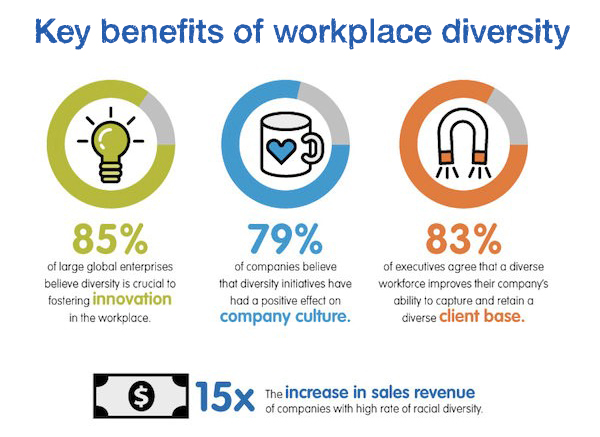
As cultural diversity becomes an integral part of the organization, people learn, grow and evolve. Image of key benefits of diversity in the workplace via Institute of Cultural Intelligence
Cultural Intelligence is the ability of a person to effectively interact, work, and develop meaningful relationships with people of various corporate cultures, traditions, nationalities, disciplines, functions, and cultures. It is a process where people slowly gain a new perspective and insight into new professional methods and language to develop better solutions to cross-cultural situations.
Cultural Intelligence or CQ is considered particularly important for a business’s success and a healthy workplace as it helps provide access to a higher number of resources. The employees can relate to working in situations that are culturally different from theirs. The best thing about cultural intelligence is that people with such capabilities can easily read other people’s emotional needs as they are in sync with their body language, attitude, beliefs, and values.
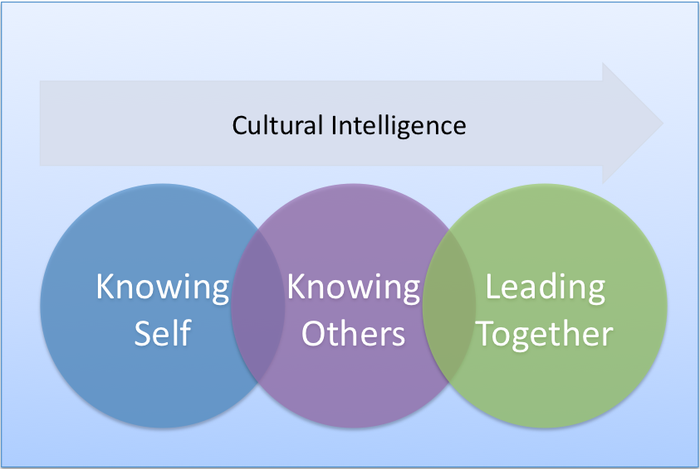
How to build a Cultural Intelligence? Image via MeetUniversity
According to David Livermore, the president of the Cultural Intelligence Center and the author of several books on Cultural Intelligence,, a person with high cultural intelligence in an organization can empathize, understand, and develop viable connections even if he does not speak the language of other people. He will develop the necessary skills to ask appropriate questions, provide the right answers, and adjust his work and dealings with people from any cultural mix.
The lack of cultural intelligence skills is frequently associated with miscommunications, lack of team cohesion and trust, demotivation, high staff turnover, loss of clients, and an impact on the bottom-line. Employees who possess a high level of cultural intelligence play an important role in bridging divides and knowledge gaps in an organization by building interpersonal connections and smooth the interpersonal processes in a multicultural workforce. Also, they possess the potential to drive up innovation and creativity due to their ability to integrate diverse resources and help the organization make the best use of the multiple perspectives that a multicultural workforce brings to the workplace.
Cultural intelligence is a crucial skill in today’s world, where people from different cultures are working together in every part of the world. Developing cultural intelligence helps organizations increase their workplace and gain a competitive edge in whatever industry they are in by creating productive relationships based on giving importance to people’s differences and effectively communicate. Establishing common ground and maximizing teamwork in groups where people act think differently.
In a multicultural workplace, cultural and social differences can improve innovation processes and assess intercultural communication, providing tools for improving people’s performance and corporate image and offering insights to understand international colleagues and clients better.
The main image via Pinterest.com

